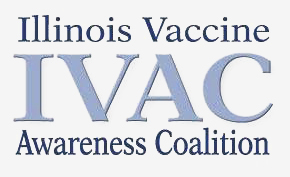Please call or email Illinois State Public Health Committee and tell him we are opposed to SB 1410 and Amendment #1, however, we support the language in proposed Amendment #2. Please adopt this in Public Health Committee Tuesday. This amendment gives the proponents what they want while recognizing the medical vulnerability or medical contraindications to immunizations for some children.
Illinois Senate Public Health Committee
John Mulroe (D)
(773) 763-3810
Springfield (217) 782-1035
senatorJohnmulroe@att.net
Patricia Van Pelt
(D) (312) 888-9191
Springfield (217) 782-6252
pvanpelt@senatedem.ilga.gov
Jacqueline Y. Collins
(D) (773) 224-2830 Springfield (217) 782-1607
senatorcollins@sbcglobal.net
Napoleon Harris (D)
(708) 893-0552
Springfield (217) 782-8066
nharris@senatedem.ilga.gov
Mattie Hunter (D)
(312) 949-1908
Springfield (217) 782-5966
hunter@senatedem.state.il.us
Kwame Raoul (D)
(773) 363-1996
Springfield (217) 782-5338
senatorraoul@sbcglobal.net
Dan Duffy (R)
(847) 277-7100
Springfield (217) 782-801
dan@senatorduffy.com
Wm Sam McCann (R)
(217) 245-0050
Springfield (217) 782-8206
senatorsam@frontier.com
Dave Syverson (R)
(815) 987-7555
Springfield (217) 782-5413
info@senatordavesyverson.com
- The language maintains a religious objection option, removes signature of religious official and public notary, requires those who want to take a religious exemption to receive education of the risks from a health care provider
- Changes from submitting religious exemptions “annually” to “prior to kindergarten, sixth grade and ninth grade”.
- Statement clarifies that physicians signing the IDPH form for religious exemptions are just confirming they provided education on risks of not vaccinating and not that they are approving religious objections.
- Prior to administering vaccination, health care providers should interview parents or legal guardian to determine family history or any medical contraindications to indicate if the child is part of a susceptible population to experience an adverse vaccine reaction. (This statement is very similar to what is presently in the IL Pertussis Act).
- If a health care provider determines that a child is part of a susceptible group or a vaccine is contraindicated, the healthcare provider shall adopt an individualized schedule if determined medically safe. (This is needed because parents are telling me that their physicians are afraid to write medical exemptions that conflict with the schedule by ACIP and even in extreme cases, i.e. anaphylactic allergy to ingredient in vaccine, are insisting on not veering from schedule due to fear of reprisal).
- Information is to be provided to parents on what a serious post vaccine reaction is and what medical attention should be sought in the event one occurs. (Also, precedent in IL Pertussis Act and sound medical policy, I didn’t define this here but we can.)
- The health care provider should be notified asap in the event a post adverse vaccine reaction occurs. They should report this to VAERS. (This is the database and measurement the CDC uses to determine safety of schedule and vaccines and is also in all Vaccine Information Sheets but is underutilized).
- Health care provider should notate any adverse reaction in the child’s health record.
- Includes language to state that a health care provider who is providing specialized medical care for a child, may sign a medical exemption letter. (This is needed because I am hearing reports of IDPH declining medical exemptions because they were signed by an immunologist or hematologist, for example and if you have a chronically or seriously ill child, you are likely also seeing a medical specialist who may be more familiar with potential adverse reactions for their patient).
- Includes language to clarify to physicians that they may use their clinical judgment regarding when to issue or not issue a medical exemption. (This is needed because, I am constantly getting feedback that doctors think they must follow only ACIP or CDC guidelines, even if they feel it’s not in their patients best interests. So, basically, it’s legal clarification for doctors that they can use their medical expertise and clinical judgment without prejudice.)
- Clarifies that when a health care provider determines that an immunization or immunizing agent could be detrimental to a child’s health and signed a medical exemption, IDPH and the local school health authority cannot force them to receive that immunization.
- Includes language stating that IDFPR cannot discipline a health care provider, solely, for providing a medical exemption or adopting an alternative schedule. (Once again, to protect the health care providers who say they will “lose their licenses” if they write medical exemptions for immunizations or adopt a different schedule and not force them into feeling like they have to potentially put a child in harms way.)
